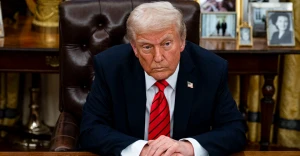
Iran may backtrack on Moscow-Tehran 'strategic partnership' deal, says expert
Tehran is trying to maintain the possibility of engaging in diplomatic relations with world leaders
Mykhailo Yakubovych, an orientalist, PhD in history, and researcher at the Oriental Studies Department of Freiburg University, shared his opinions with Espreso TV.
He noted that the agreements between Russia and North Korea differ from those between Russia and Iran.
"Pyongyang and Tehran are completely different realities. Tehran still tries to preserve the possibility of handshakes with world leaders. Tehran seeks to reduce sanctions. Tehran tries to pretend to be reasonable and a player capable of negotiations. And, by the way, in many ways, this is true, considering their historical relations with, for example, the United States and European countries. With Pyongyang, it's a different story. Secondly, the territorial aspects or mutual military obligations in the agreement are not well-defined.
There are conditions noted by analysts, suggesting that Iran does not support Russia's annexation of certain Ukrainian territories. This is partly true, as Iran in the UN, we know, either votes against any condemnation of Russia or abstains, but on the other hand, it says it supports the end of the war under the condition of territorial integrity. Clearly, this is the hypocrisy of the Iranian regime, but the question is who benefits more from this agreement — the Iranians or the Russians," he said.
Mykhailo Yakubovych also noted that Iran is preparing for negotiations with Trump, and its cooperation with Moscow will serve as an argument in these talks.
"And here, it's easy to weigh these two sides. For the Russians, it's an additional means of pressure on the West, showing that they have cooperation with Tehran, and that this cooperation could even involve a nuclear component, although that's unlikely in the near future, and China will obviously not support it. For the Iranians, it's an opportunity to gain more access to space technologies, modernize their gas transportation systems, and continue developing various technologies related to nuclear energy.
In essence, Iran is preparing for negotiations with Trump. Trump, despite making loud statements against Iran, saying that Iran will be the number one enemy and that there will be strong pressure, has his advisors interpret it quite differently. The pressure will continue, but judging by everything, for Iran, this cooperation with Russia will be one of the arguments, saying, 'If you don’t lift sanctions from us, if we can’t sell oil to more countries, we can keep working with Moscow,'" said the orientalist.
In his opinion, Iran may backtrack on its cooperation with Russia if sanctions are lifted.
"Iran will not be as dependent on Russia as Bashar al-Assad was, or as Pyongyang has become - though maybe Pyongyang is still controlled by China. So, this will be a situational ally, considering their historically problematic relations, but it will be a deal they can use to pressure Trump, saying: 'We can backtrack, and the agreement allows for that, if sanctions are lifted and if they continue to communicate with us.' How the United States will respond in this case is uncertain. But Iranian analysts, even those close to the regime, are generally inclined toward negotiations. Moreover, Iran’s proxies, like the Houthis, Hezbollah, and Hamas, are not in the best position to continue attacks against Israel. Therefore, it’s beneficial for them to have an additional argument, but whether it will work is a big question," said Mykhailo Yakubovych.
- Russian leader Vladimir Putin and Iranian President Masoud Pezeshkian signed a treaty on a “comprehensive strategic partnership” between their countries on January 17.
- News











































